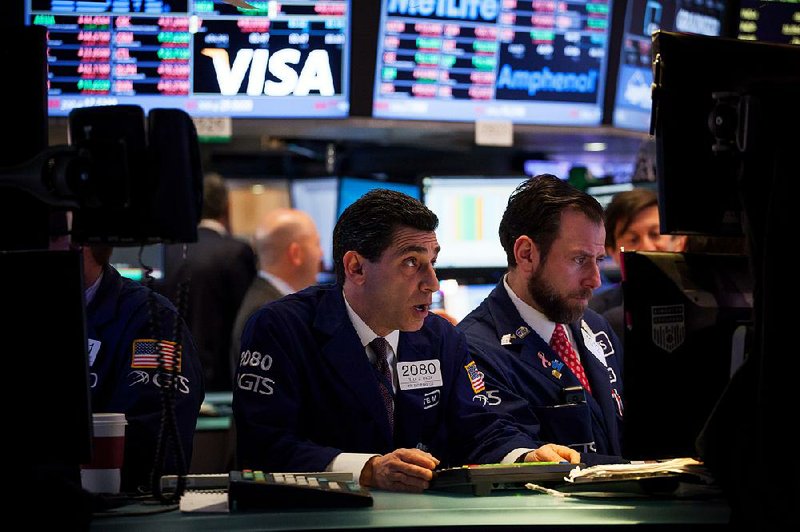NEW YORK -- U.S. stocks fell Monday as investors grew nervous after President Donald Trump imposed a travel ban on seven Muslim-majority countries. Energy companies, which have surged over the last year, took the biggest losses.
Airline stocks skidded after Trump's executive order led to protests and disruption at airports and concerns about travel. Big-name technology companies sagged on concerns that future administration moves will make it harder for them to hire workers.
Investors took profits as they sold shares of basic materials and industrial companies, which have rallied since the November election. The VIX, a measure of Wall Street volatility, jumped, though it remains relatively low overall. Stocks in Europe lost ground as well.
Sameer Samana, strategist for Wells Fargo Investment Institute, said investors are not overly alarmed by the news of the travel ban, but aren't sure what to make of it, either.
"It's very difficult to figure out exactly what implications it has for the economy and for markets," he said.
The Dow Jones industrial average fell 122.65 points, or 0.6 percent, to 19,971.13. It dropped as much as 223 points in the morning. The Standard & Poor's 500 index lost 13.79 points, or 0.6 percent, to 2,280.90.
The Nasdaq composite dropped 47.07 points, or 0.8 percent, to 5,613.71 after it closed at an all-time high Friday. Small-company stocks were hit harder. The Russell 2000 index shed 18.37 points, or 1.3 percent, to 1,352.33.
Late Friday Trump suspended the U.S. refugee program for 120 days and blocked travel to the U.S. by citizens of seven countries. His order is being challenged in court. Some airports became protest sites, and investors wondered if American tourism will be affected. American Airlines shares fell $2.05, or 4.4 percent, to $44.90 and United Continental lost $2.70, or 3.6 percent, to $71.72.
Domestic airlines also struggled, and so did other companies that don't necessarily have much at stake in disputes over immigration policy or global trade.
Samana said there's no specific reason that the recent moves would hurt bank profits or small domestically-focused companies, for example, and they may not cause long-term trouble for airlines. Instead, the stocks that did the worst Monday are largely the ones that have done the best since the election, including energy companies, banks, and smaller companies.
Construction and mining company Caterpillar fell $2.20, or 2.2 percent, to $96.79 and construction and technical services company Jacobs Engineering dipped 98 cents, or 1.6 percent, to $59.38.
Construction materials company Vulcan skidded $3.63, or 2.7 percent, to $130.73 and chemicals maker DuPont dropped $1.70, or 2.2 percent, to $76.
The day's largest losses went to energy companies, which have surged over the last year as the price of oil recovered from a deep drop. Chevron retreated $1.97, or 1.7 percent, to $111.82 and ConocoPhillips fell $1.95, or 3.9 percent, to $47.48.
U.S. crude oil slid 54 cents, or 1 percent, to $52.63 a barrel in New York. Brent crude, the benchmark for international oil prices, fell 29 cents to $55.23 a barrel in London.
Bond prices slipped. The yield on the 10-year Treasury note rose to 2.49 percent from 2.48 percent.
Business on 01/31/2017

